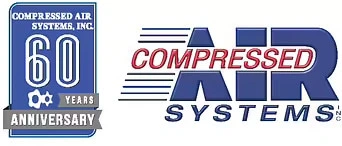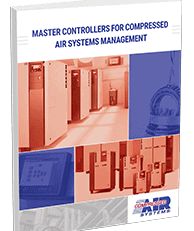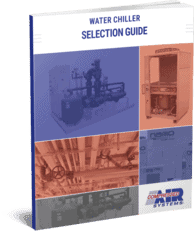Oil-free Air Compressors
What is an Oil-Free Compressor?
When selecting an air compressor, it can be difficult to determine which type of compressor will be best for your application. While many factors play into this decision, users must ultimately decide whether an oil-lubricated or oil-free air compressor is the appropriate solution for their specific need.
In the oil vs. oil-less air compressor debate, many companies are beginning to recognize the benefits of using oil-free compressor models over their standard oil-lubricated air compressor counterparts.
Oil-Free Air Compressor Advantages
Oil-free air compressors offer a number of advantages over oil-lubricated models. Without standard oil usage, oil-free compressors provide significant cost-savings on filter costs and used oil disposal. While the gearbox takes a long-term lubrication solution, oil-free compressors eliminate the need for oil changes or fills during maintenance cycles. Additionally, because the oil-free compressors do not require increased force, they reduce related energy costs.
Even with these differences, oil-free compressors don’t sacrifice efficiency and can typically unload within two seconds at about 18% full load horsepower.
How Oil-Free Air Compressors Work
Oil-less air compressors work a little differently than oil-lubricated compressors, as they don’t require a lubricant to cool air. Instead, they go through a six-step process to compress and cool the air, as follows:
- Intake
Oil-free air compressors draw in air from the outside via an unloader valve. The air then passes through one or more filters to filter out any particulates, such as dust or dirt.
- Initial Compression
Once the air is drawn in through the unloader valve, it passes into a chamber where oil-free elements compress the air while keeping it free from lubrication contamination.
- Initial Cooling
The air is cooled for the first time at this stage to avoid unnecessary heat damage to internal compressor components. In pumps operating with two stages, air may also be compressed at a much higher PSI. Intercoolers also come equipped with filters to remove any condensation that rises from the cooling process.
- Second Compression
Once cooled, the air returns to the main chamber, where it experiences a high-pressure compression process.
- Second Cooling
Once fully compressed, the air passes through an aftercooling stage. This stage further cools the air into a form in which it can be properly stored.
- Automatic Detection
Oil-free air compressors offer an automatic refill technology. Sensors monitor the level of air within the storage tank, and the compressor will turn on and begin the process of refilling the tank with pressurized air once the stored air reaches a pre-set level.
Oil-Free: The Right Choice for Dentists
Dental offices are a prime example of an application that has greatly benefited from the use of oil-free air compressors. While some dentists fear that an oil-free compressor will be too loud for use in an office, noise suppressors can be fitted to the filters to cut down on the noise generated by the compressor. Oil-free air compressors also tend to be lighter and smaller, so they are better suited for use in small spaces, such as a patient area.
Some oil-free compressors can generate the same pressure and airflow as their oil-lubricated counterparts, and it’s important for dentists to choose the correct model. However, oil-free compressors are chosen in many medical applications for one primary reason—they drastically reduce the risk of lubricants contaminating the air supply.
Contaminated air can be extremely harmful to patients, so the benefits of oil-free models in this type of work cannot be understated.
Common Applications for Oil-Free Air Compressors
Of course, dentists aren’t the only professionals seeing benefits from oil-less air compressors. These compressors have also been shown to benefit a wide range of other applications, in industries such as:
- Automotive
Workers in automotive applications will benefit from reduced exposure to oil-contaminated air. In addition, oil-free compressors have been proven to provide high-quality finished paint jobs, and the less frequent maintenance cycle of an oil-free compressor ensures that processes run smoothly. - Chemical
In chemical manufacturing and processing, product purity is an utmost priority, so using a purer supply of air is ideal. Oil-free compressors are also safer, since there is less risk of lubrication contamination reacting badly with other chemicals. With no need for oil changes or fills, there’s also less waste involved. - Electronics
Electronics manufacturing often requires extremely sanitary conditions to ensure that products are fabricated contaminant-free and of the highest quality. The uncontaminated compressed air from oil-free compressors contribute to the ultra-clean conditions required by these processes. - Food & Beverage
Air contaminated even slightly by lubricants can affect the end quality and flavor of food and beverages. In food and beverage manufacturing, oil-free compressors contribute to a healthier, cleaner final product. - Oil & Gas
Oil-free compressors only require monthly maintenance to check parts for wear and don’t need oil changes or top offs, which contributes to error-free control systems and processes. The cleaner air provided by oil-less air compressors also contributes to increased safety and better quality final product in these applications. - Pharmaceuticals
One of the most sensitive manufacturing processes, pharmaceutical relies on high-quality cleanroom conditions to guarantee the health and safety of its patients. Oil-free compressors contribute to pure production, reduced contamination risk, decreased waste, and more efficient overall processes. - Textiles
Efficiency is a key factor in textile production, so the reduced maintenance and repair costs associated with oil-free compressors have been a boon for this industry. Oil-free compressors also contribute to higher textile quality and reduced wastage.
Learn More
In business since 1963, Compressed Air Systems offers a wide range of air compressors, vacuum systems, and blowers. We also run our own installation, service, and rental departments. Backed by 55 years of industry experience, our team can help you address any compressed air challenge you may face.
To learn more, check out our Benefits of Proper Air Maintenance Compressor Guide to see how you can improve the compressed air efficiency in your operation.








